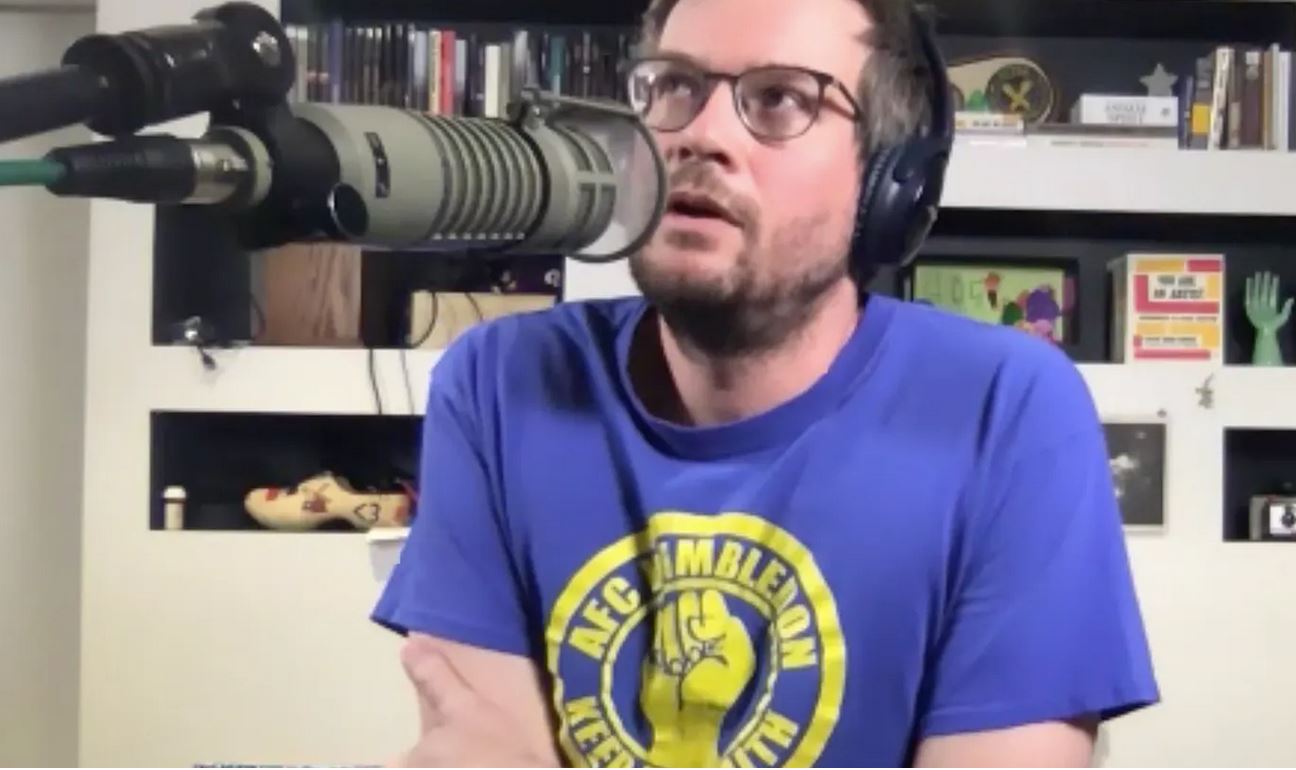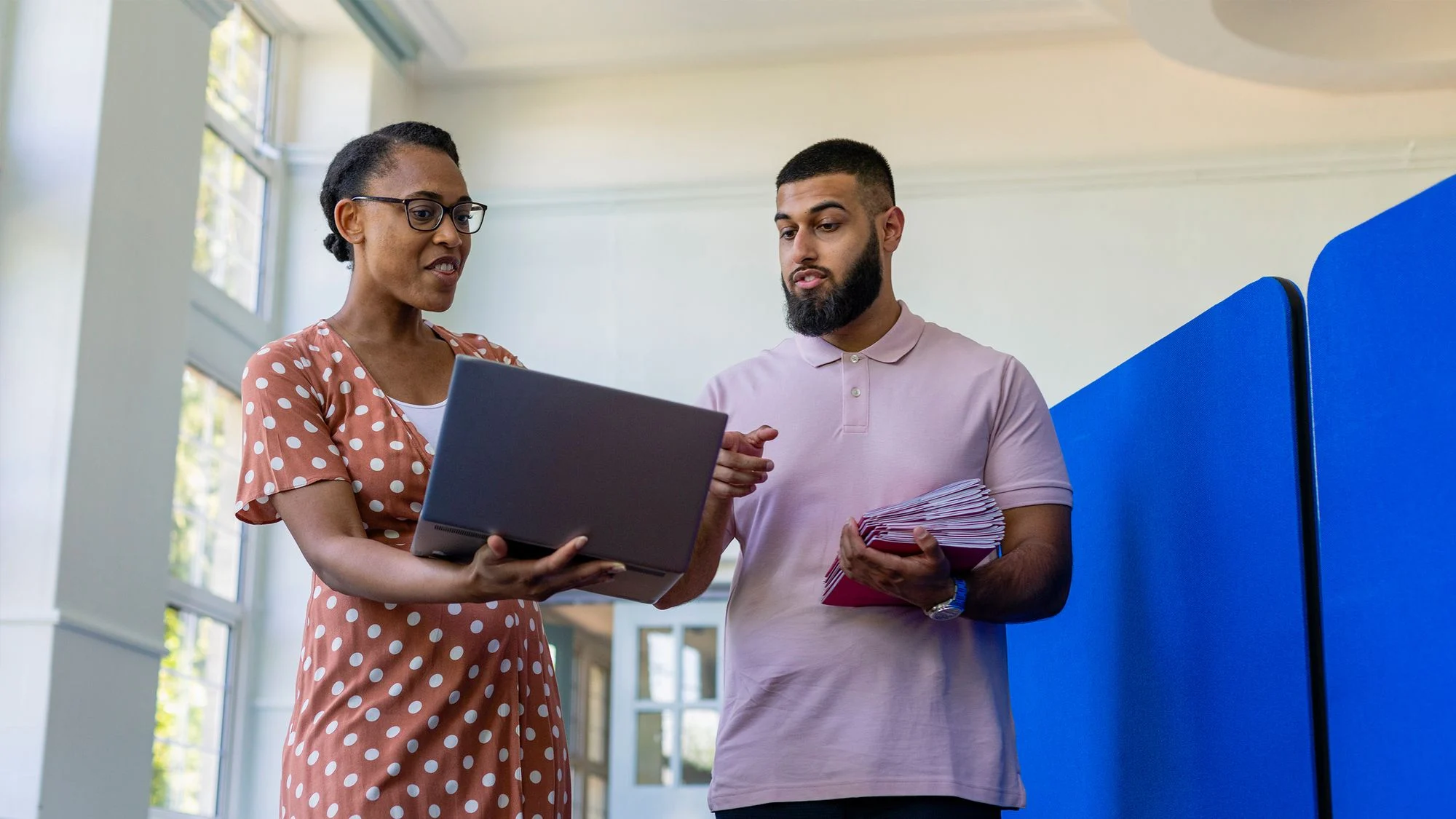How YouTube Star John Green Thinks About His Educational Videos
This article is part of the guide Sustaining Higher Education in the Coronavirus Crisis.
In this time of the pandemic, when schools and colleges have shifted teaching online, more teachers find themselves making videos for their students, who in turn are seeking out such resources on their own.
For this week’s podcast, we reached out to one of the masters of making educational videos, John Green, and asked for his advice and thoughts on the state of education during this unprecedented time.
John Green is one of the most famous YouTubers, having built a following by making videos on the platform since 2012. He and his brother, Hank, have made educational videos under the banner of Crash Course. It has grown into a library of more than 1,200 explainer videos, many of which have received more than a million views each and are assigned in schools and colleges around the world.
Green is also a bestselling young adult novelist. His book, “The Fault in Our Stars,” was made into a major motion picture.
Crash Course tackles weighty subjects like European history and organic chemistry. But it does so with wit and humor, and it has a snappy pace that feels more like an episode of the Simpsons than the typical classroom lecture. Green exudes an infectious curiosity that makes viewers want to keep learning, even if it’s on a topic they didn’t even know they were interested in.
Listen to this week’s episode on Apple Podcasts, Overcast, Spotify, Stitcher, Google Play Music, or wherever you listen to podcasts or use the player below. Or read a short recap below.
Green had no prior background in education, and he doesn’t see himself as a teacher at all.
“I usually say I work in educational videos, and that’s how I think of that work,” he said. “Teaching is something that happens between students and a teacher. I think the kind of one-way street that is necessitated by educational video, it just isn’t teaching. It’s valuable and it’s important. But it can never replace teaching. It can never replace the classroom.”
In fact, when Green and his brother created Crash Course back in 2011, they were purposely not trying to be part of the trend du jour at the time, which was to build video-based substitutes for classroom courses. “We wanted to make something that could maybe reinforce some of the learnings from class, or maybe introduce some of the ideas that will then be discussed in greater detail in class,” Green recalls.
His advice for instructors suddenly making videos or teaching online?
“Don’t be afraid of the medium,” he says. To that, he adds: “Watch some good YouTubers. Watch the people who have found a way to build big audiences.”
He is continually inspired by others. “There are a lot of great educational video creators out there who we can learn from. And I’m learning from them all the time. I’m learning from them about new editing techniques about how to create the sense that you’re there with [viewers], that you’re listening to them, even though of course you can’t be.”
And he says there’s no need to sweat about making videos perfect. In fact, they might work better if they’re not. “These kids have been watching YouTube their entire lives, and they’re used to bad cuts,” he says, referring to sloppily-edited videos. “They actually think that a poorly edited video is in some ways cooler or more authentic.”
Green doesn’t just make educational videos these days. Among his other creations is a monthly podcast with WNYC public radio called The Anthropocene Reviewed. In some ways, this is the opposite of the Crash Course. Rather than tackling huge topics like world history and the Cold War, he narrows the subject matter to very specific things, like the cultural significance of scratch-and-sniff stickers, or the history of rock, paper, scissors.
His clever formula for the show is that, after delivering deep thoughts about cultural phenomena, he gives it a rating on a one-to-five star scale. For instance, Green ends up giving the Taco Bell breakfast menu two stars, as if his thoughtful commentary could be subbed up in a single number.
And this unusual podcast of reviews usually ends up tying back to Green’s life. The episodes include surprisingly personal stories about his own relationship to whatever he’s talking about that month so that they operate like little starting points for a memoir.
How does Green see his podcasting in relation to his educational video work?
“Well, I started out as a book reviewer, so I reviewed books for Booklist magazine from about 2000 to about 2006, and I’ve also reviewed books for other publications as well,” he says. “And that was before everyone became a reviewer of everything, before Yelp”
How has the world of educational video changed since he got into it almost a decade ago?
“There’s a lot of really good educational videos out there” now, he says. “I think the biggest challenge now is the discovery and helping teachers and students to find the right videos for them.”
This is a brief recap. To hear the voices (this story works better as audio), listen to the podcast episode.
Source: https://www.edsurge.com/news/2020-04-28-how-youtube-star-john-green-thinks-about-his-educational-videos




